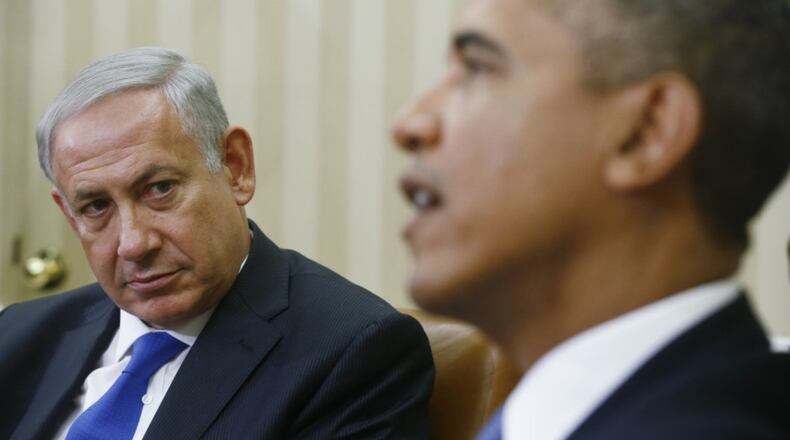So was Benjamin Netanyahu lying then, or is he lying now?
I think he's lying now.
Just a week ago, he was telling the world that if re-elected prime minister of Israel, he would not accept a two-state solution to the Israeli-Palestinian conflict. As Netanyahu understood better than anyone, such a statement had profound implications,. Support for a two-state solution has been the bedrock of U.S. Middle East policy in every administration dating back to that of Richard Nixon, and Netanyahu had now publicly rejected it. As the election drew closer, he made no attempt to walk back that rhetoric or to correct the impression that his words had made.
Only now, with the election safely behind him, does he attempt to sing a much different song. He tells us now that he had been misinterpreted, that really, he still hopes to see and is willing to work toward an independent Palestinian state. The problem is that nothing in his record as prime minister would suggest that is true. His long personal history on settlements and other issues matches much more closely with his pre-election rejection of a two-state approach than it does his more accommodating rhetoric today. Some things, once seen and said, can't be unsaid or unseen, and this is one of them.
More importantly, and more depressingly, Netanyahu's rejection of a two-state solution has now been more or less validated by Israeli voters who have returned him to office. They too are now on record, and that too is the kind of thing that can't be taken back easily.
As a result, an already strained relationship between Israel and the United States has been seriously damaged, with President Obama already being urged by some to try to repair it as soon as possible. That seems a strange assignment of responsibility.
It is the actions and statements of Israel's leadership, not of American leadership, that have caused the current problems. It is Israel, and more specifically Netanyahu, who is attempting to redefine the longstanding basis of our relationship as understood by both Democratic and Republican administrations.
In addition, we give Israel billions of dollars in aid each year; we also provide extensive military support as well as much-needed diplomatic cover. While the Israeli-U.S. relationship is important to both countries, it is far more important to Israel and Israel receives far more of its benefits. For all those reasons and more, the onus of repairing the relationship should fall largely although not entirely on the Israeli government, rather than our own.
And here's a harsh truth that must be told: An Israel that attempts to permanently incorporate all or most of the West Bank into its territory while denying full citizenship and human rights to millions of people who live there -- that Israel will not enjoy the permanent, long-term support of the American people. It just cannot be sustained on that basis.
True, for a number of Americans support for Israel is unconditional, and at the moment, that number no doubt constitutes a majority. Over time, however, the type of systemic repression necessary to carry out Netanyahu's vision would conflict too directly with deeply held American values of democratic self-determination and basic fairness. Over time, that contradiction would prove poisonous, and is already doing so.
The United States of America has proved itself a strong friend, willing to spend its resources and even the lives of its soldiers in defense of an Israel with whom it has proudly shared values. But if those shared values no longer exist, if Israeli leaders and voters are willing to sacrifice those democratic values in exchange for the poisoned fruit of territory, then they choose to undermine the foundation of the relationship between our nations.
It is important that they understand that choice and its implications.
About the Author
Keep Reading
The Latest
Featured



